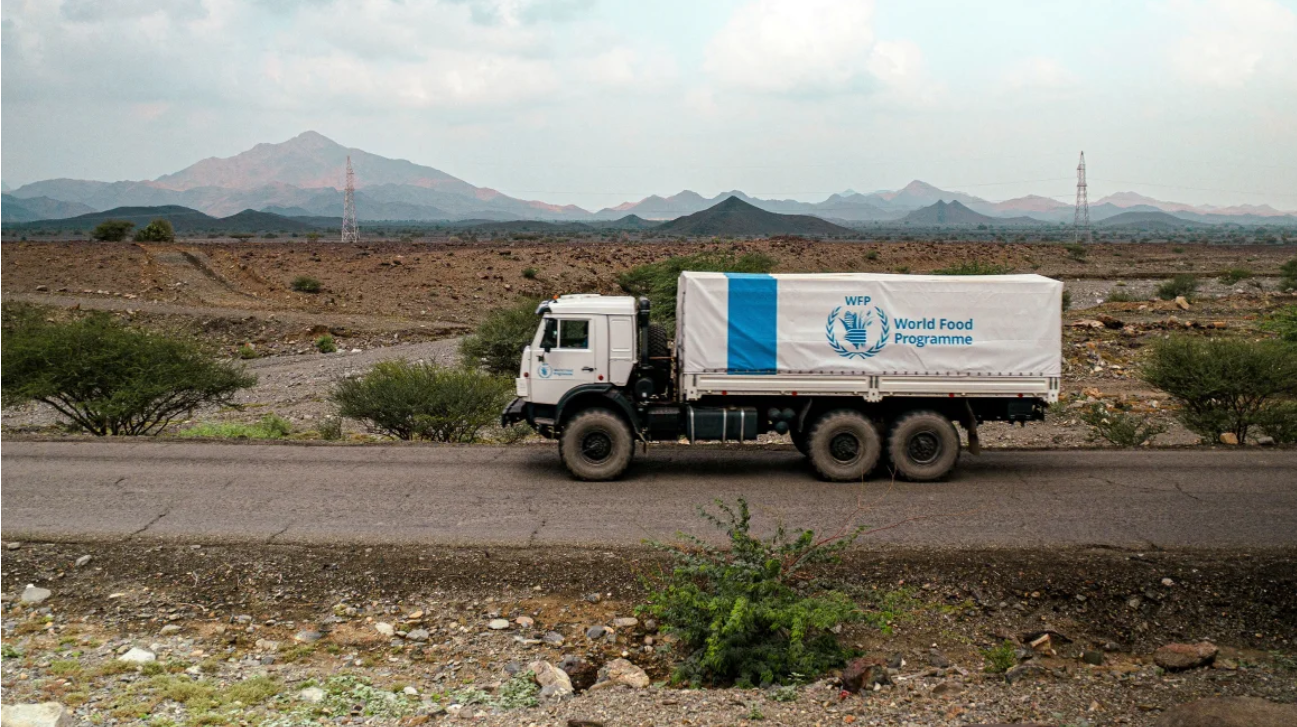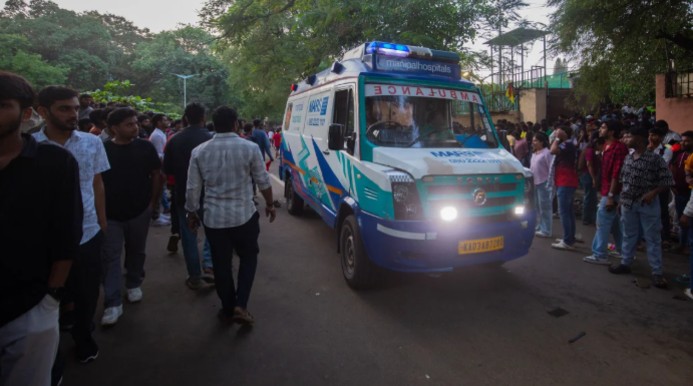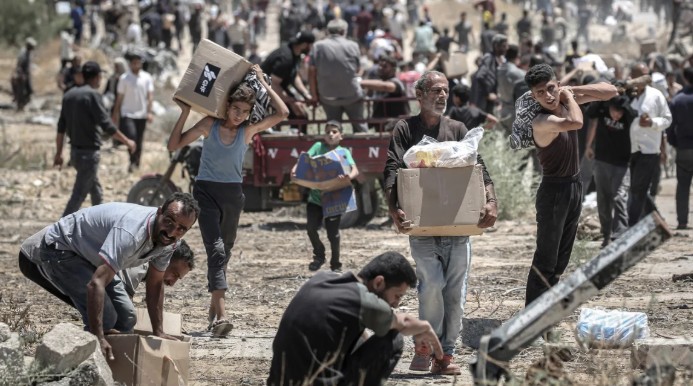
A WFP truck carries aid from Port Sudan to Sudan on November 12, 2024.
A deadly attack on a United Nations food convoy in Sudan has further crippled efforts to deliver vital aid. Five humanitarian workers were killed and several others injured as trucks carrying life-saving supplies were targeted en route to North Darfur’s al-Fashir, a region on the brink of famine.
The convoy, organized by the UN Children's Agency (UNICEF) and the World Food Programme (WFP), had traveled over 1,800 kilometers from Port Sudan before it was attacked. Several trucks were burned, and critical supplies were destroyed, disrupting an essential mission to feed starving families.
Violence Blocks Lifeline to Starving Families
The targeted convoy was carrying food aid for children and families suffering from extreme hunger. According to the joint UN statement, the attack occurred despite the route being pre-disclosed to all parties involved in the ongoing conflict.
Aid officials warned that unless new supplies reach al-Fashir soon, hundreds of thousands could face malnutrition and starvation.
This incident highlights how humanitarian efforts are repeatedly obstructed in Sudan, where a civil war between the Sudanese army and the Rapid Support Forces (RSF) has raged for over two years.
Who Is Responsible? Conflicting Claims
Blame for the attack remains unclear. The Sudanese army and the RSF have both issued statements pointing fingers at one another.
The RSF accused the army of conducting an airstrike that hit the convoy. In contrast, the army claimed the RSF set the trucks on fire. With no independent verification available, the truth remains uncertain.
The UN agencies have demanded an urgent investigation, calling the incident a serious violation of international humanitarian law.
Aid Workers Under Fire: A Disturbing Pattern
This tragedy is not an isolated case. In recent weeks, there has been a surge in violence against humanitarian missions in Sudan.
UN warehouses have reportedly come under repeated shelling in al-Fashir by RSF forces. A separate incident last month in North Kordofan saw an attack on El Obeid hospital, where several medics lost their lives.
Such repeated assaults have severely restricted humanitarian access, leaving entire communities isolated and without help.
Al-Fashir: A City Cut Off and Starving
Al-Fashir, the capital of North Darfur, has become the epicenter of Sudan’s deepening hunger crisis. Intense fighting and blocked routes have left food supplies scarce and people desperate.
The RSF controls the nearby town of Al Koma, which saw a drone strike earlier this week killing several civilians. With both sides accused of restricting aid, al-Fashir remains largely cut off from humanitarian relief.
The recent convoy attack only worsens an already dire situation, threatening the survival of countless vulnerable families.
The Urgent Need for Protection and Access
Humanitarian agencies are calling for stronger protections for aid convoys and immediate safe access to affected regions.
"This violence must stop. Aid workers must be protected, not targeted," said the UN’s joint statement.
Unless swift action is taken to restore safe delivery routes, Sudan’s hunger crisis will spiral further out of control, leaving more innocent lives at risk.















